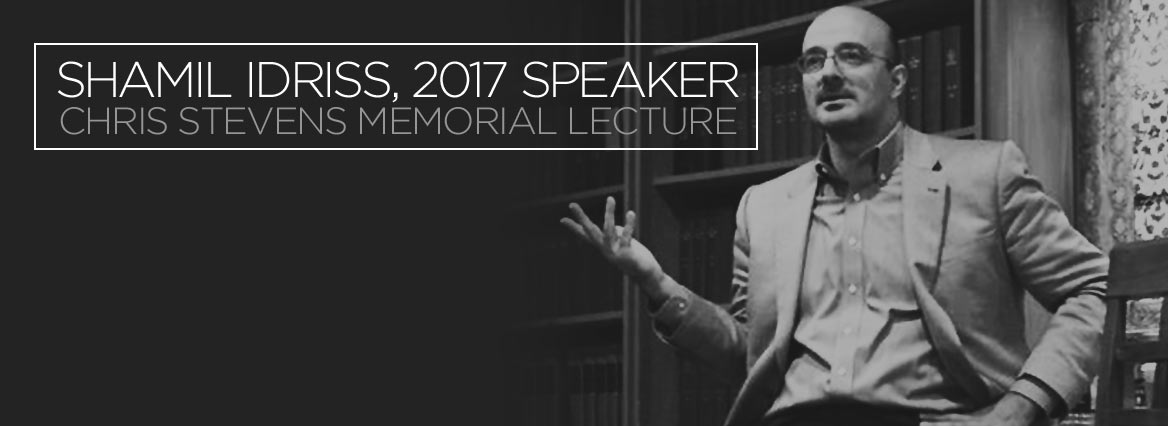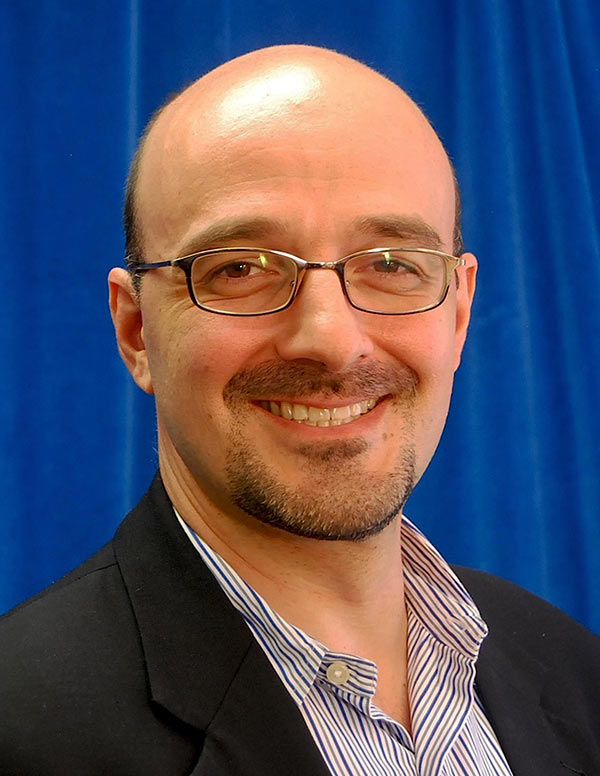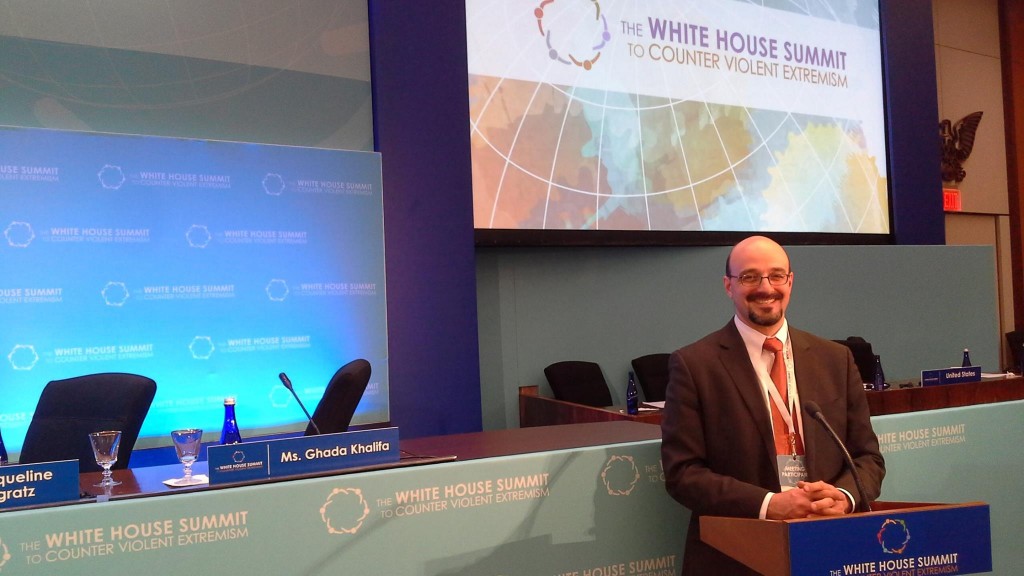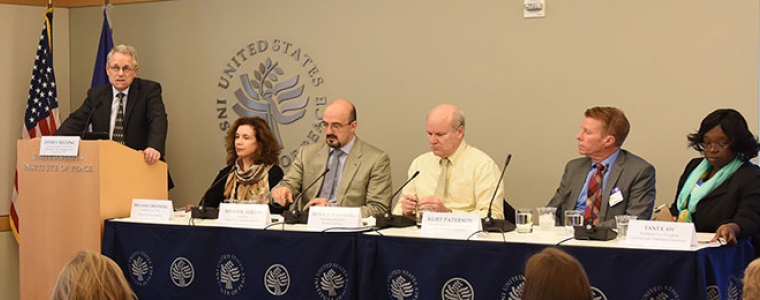
Conflict is Inevitable, Violence is Not
The 3rd biennial Ambassador Chris Stevens Memorial lecture took place on March 1, 2017.
- A recording of the keynote lecture can be found here.
- A recording of the alumni panel can be found here.
The President and CEO of Search for Common Ground and former Deputy Director of the UN Alliance of Civilizations, Shamil Idriss was the featured speaker, lecturing on Conflict is Inevitable, Violence is Not.
To mark the the official launch of the Peace Corps Prep Program, there was also be a panel presentation by PLU and Peace Corps alumni – Colin Hartke ’08, Taneesha Jenkins ’10, Annē (Hoblitt) Linn ’08 and Bonnie Nelson ’08 – on the topic of, Local and Cross-Cultural Engagement: Challenges and Opportunities.

About Shamil Idriss, 2017
Shamil Idriss is President and CEO of Search for Common Ground, a global conflict transformation organization with offices in 35 countries. Prior to this position he was appointed Deputy Director of the UN Alliance of Civilizations by UN Secretary-General Kofi Annan, served as Senior Advisor at the World Economic Forum and was a member of the Steering Committee of the Forum’s Council of 100 Leaders. As CEO of Soliya from 2008-2014, Mr. Idriss led a campaign involving public and private sector leaders to establish the field of “virtual exchange” which culminated in the establishment of the J. Christopher Stevens Virtual Exchange Initiative announced by U.S. President Obama in February 2015. Idriss is a member of the World Economic Forum’s Young Global Leaders and recipient of the Open Society Foundation’s New Executive Award in 2015.


A commitment to the power of grassroots citizen-generated conflict prevention and peacebuilding has defined Mr. Idriss’s life’s work. Even as a senior with a major in Economics and Philosophy at Swarthmore College, he demonstrated his passion for conflict prevention writing an undergraduate thesis on the topic of “Track II Diplomacy and International Conflict Prevention.” Track II diplomacy, writes Charles Homans in the 2011 issue of Foreign Policy, “grew out of the observation that private individuals, meeting unofficially, can find their way to common ground that official negotiators can’t.” Governments, Homans continues, “once viewed Track II as a kind of feel-good exercise at best, and at worst as a genuine threat. …Once a fringe notion, Track II is now taught in 99 conflict resolution graduate programs in American universities, and many more worldwide.”
As recently as November 12, just days after the most divisive election season in recent US history, Mr. Idriss’s blog for Search for Common Ground reminds readers of their role in unifying our divided nation: “The biggest mistake we can make is to assume that it is up to our political leaders to unify us. They can set the tone, but it is primarily in the hands of the American people to rebuild a basic level of mutual respect and dignity… Breakthroughs usually come out of crises, and we are in that crisis. So there is not better time for We, the People, to build a new order: one based on mutual respect and care for our fellow citizens, a commitment to social justice, and a defense of civil liberties that give us power to build that order in the first place.”




Social Media